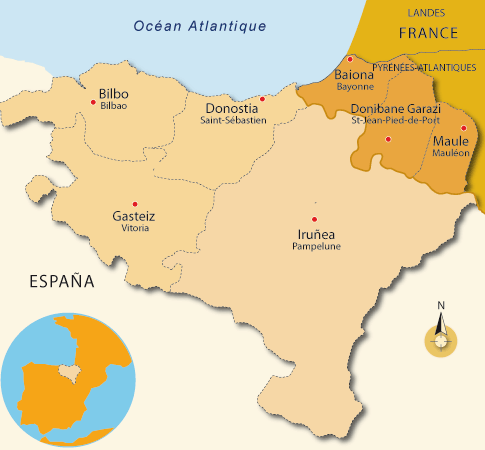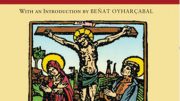by Mertxe Aizpurua Arzallus.
1. About Udalbiltza
Udalbiltza (an assembly of Basque towns, cities and councillors) is operational again. A meeting for its re-organization was held in Donostia on March 2, 2013 to reinitiate the building of a nation.
The towns, cities and councillors had already carried out a lot of work with the objective of building a nation. Over the last century events worthy of mention include the Statute of the Southern Basque Country, passed in Estella (Navarre) in 1931; also worth mentioning is the mayors’ movement of the Southern Basque Country in 1976 which came about after almost 40 years under dictatorship.

Udalbiltza Meeting in 2013
The next milestone occurred with the ceasefire of ETA in 1999 with the Lizarra-Garazi Agreement led by Basque Nationalists and the creation of Udalbiltza in Bilbao comprised of all the Basque Councillors. This was the first national institution in political terms of the modern era by which the following five principles were approved:
- The Basque Country is a nation.
- Creating Basque political articulation is needed.
- Building a nation is prioritary.
- A network of municipalities must be established.
- Asserting internationally that the Basque Country is a nation in its own right is a goal.
After the breakdown of the Lizarra-Garazi Agreement in 2001, Udalbiltza became divided into two separate factions due to disagreements. In 2003, the Spanish State set up an operation to bring down Udalbiltza by trying to link it to ETA. In 2011, the court sentenced it as not guilty of the charge. In the 2013 meeting, Udalbiltza once again ratified its five foundational principles.
Udalbiltza considers sovereignty a necessity and is dedicated to this journey.
2. Obstacles
In additional to the legal-administrative situation, there are the following three large obstacles hindering the path to sovereignty:
Spain and France’s denial of the Basque Country as a political subject. In the struggle for Basque Country freedom, the only response from Spain and France is denial. If we look back over history from the 13th century to the present, this description has been more than proven. Here are two examples of Spain’s denial, both at the institutional level from the last decade: in 2005, the rejection of a new Political Status of Autonomy for the Basque Country, an autonomous community of the Southern Basque Country; and in 2008, the prohibition on the Basque Consultation Law. France demonstrates a similar attitude, for example in relation to the Northern Basque Country Territorial Group demands.

Map of the Basque Country
Lack of union among the forces taking the Basque Country into consideration. In the Basque Country, although there is a union of forces and common groundwork, we feel there is not a truly wide basis of agreement regarding the political subject, strategy, national pillars, etc. According to writer Jose Maria Pérez Bustero, “While we’re clear the Basque Country must be built, we have yet to sufficiently design the how-to.”
The consequences of the conflict are not over. Lack of a different political culture. Despite these difficulties, Udalbiltza feels the peace process in the Basque Country is in progress and should be brought to completion. Without delving into concepts and subjective postures (pardon, repentance, etc.), and excluding a single truth, we should work with our sights on the future. In particular by:
- Acknowledging there have been many victims of many kinds,
- Defending and fostering human rights,
- Adopting and developing measures for co-existence.
In the Basque Country we need a new political culture based on: co-existence, tolerance, respect, acknowledgement of diversity, participation, enlargement of decision nuclei, etc.; not only to build a nation but also for political normalization.
3. The Right to Decide
History does not grant rights although it is an important argument. The Basque Country is a nation which once had a state structure, and although this fact is an important argument, history does not automatically grant rights with a view to achieving sovereignty in the future. Entitlement is based on the will of the majority of its citizens on exercising the right to decide as a democratic principle.
According to writer Joseba Sarrionandia, “It’s important to remember Basques have always been prevented from the possibility of doing politics. Anyhow, a nation isn’t going to resemble what it remembers but rather what it is doing.”
Referendum: a democratic principle and an exercise of independence. Indeed, the Basque Country, as the writer Angel Rekalde pointed out, “hasn’t defined, proposed or considered a process in favour of its own state” on a large scale with consensus. Nevertheless, it is also true that in order to achieve our own state, then it must be based on the free will of our citizens, exercising their right to decide.
Basque Public University professor Mario Zubiaga states, “What kind of leap is needed for the right to decide? One which doesn’t require acknowledgement. Democratic legitimacy has no limits.” Basque Public University professor Iñigo Urrutia adds, “The secession process needn’t be the right of self-determination; there may be another kind of legitimation such as democratic legitimation.”
Udalbiltza is in favour of such democratic principle. Furthermore, carrying out a referendum without authorization would be an exercise of independence.
4. Our Own Path
If Spain and France deny a nation’s existence and if it has to decide its own future, then there is a need to draw up a political project to be carried out, building a political subject. Prior to this, a particular climate should be forged with other people who take the Basque Country into consideration, laying down common national foundations, strengthening civil society, building confidence through agreements, etc.
In other words, travelling along one’s own path. This is the message Udalbiltza is broadcasting since becoming operational in March this year.
—————————————
Four links:
- Udalbiltza web (in Basque, French, and Spanish)
- Udalbiltza document on the right to decide (in Basque)
- The role of the town councils in the Kurdistan peace processes’. Speech by Udalbiltza:
- Basque Country data in English (‘Basque Country landscapes’)
 |
Mertxe Aizpurua Arzallus is Chairperson of Udalbiltza |
| @Udalbiltza | |






Be the first to comment on "Udalbiltza – the Basque Country and Sovereignty"